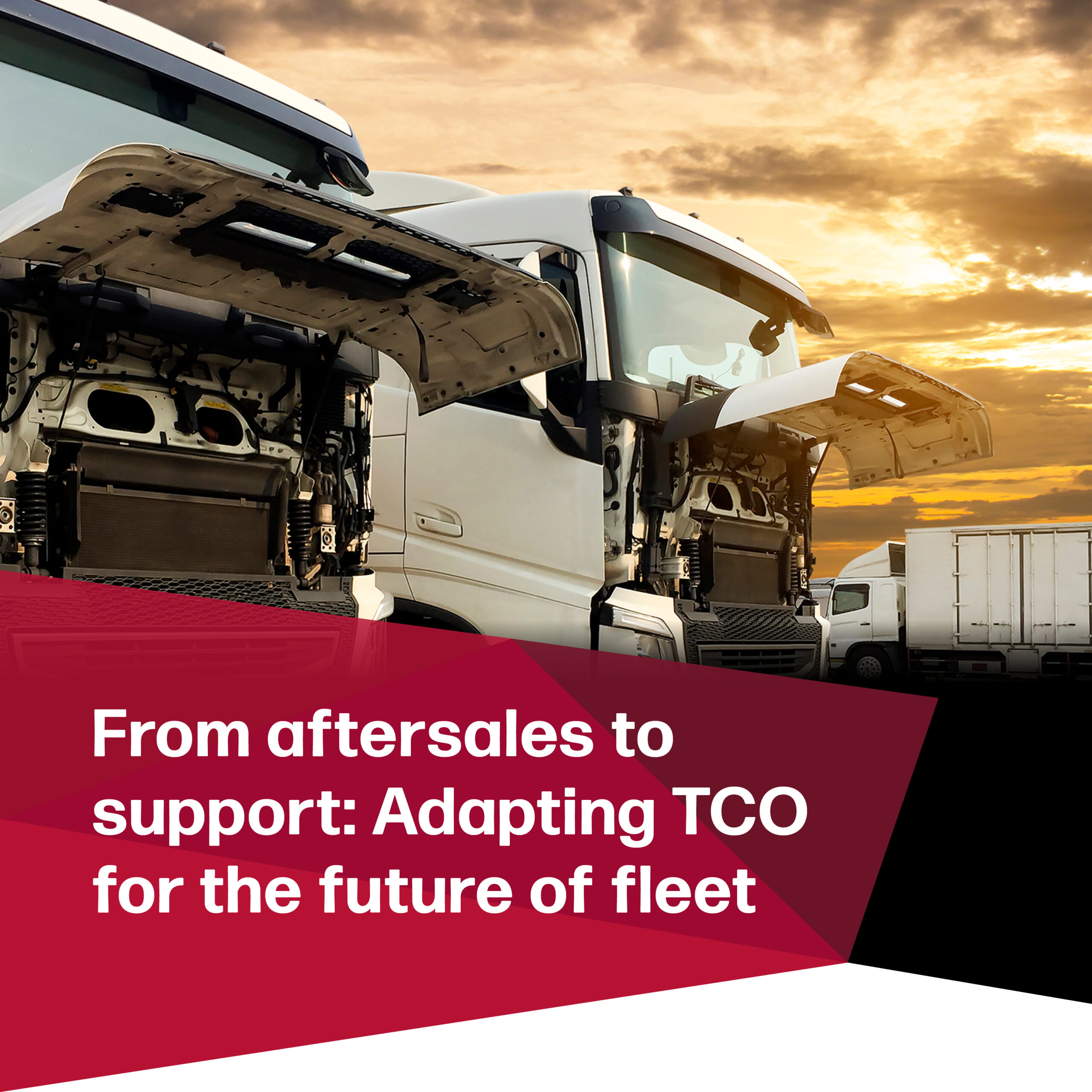
In discussions around evolving technology and connectivity in the automotive sector, heavy commercial vehicles deserve some recognition. After all, technologies that monitor routes, fuel consumption, logistics optimization, and more, have already been widely researched, developed and implemented. But despite these recent advancements in technology, the cost of heavy commercial vehicles remains a fundamental purchasing consideration for customers.
In the past, total cost of ownership (TCO) has been the main contributor to cost analysis in the purchase of heavy trucks. However, the heavy truck industry has helped pioneer the use of technologies, such as vehicle connectivity and telematics data, to shift the focus of work from maintenance only, to aftersales support that lasts the entire lifecycle of a customer’s vehicles or fleets. MSX believes this technology is the key to a stronger future for heavy trucks and their TCO.
The exponential impact of technology on fleet management and partnerships
Traditionally, TCO refers to the total costs of owning a vehicle, such as what the owner can expect to pay in fuel, maintenance costs and repairs. Fortunately, the availability and quality of telematics and data collection have improved and become standard throughout the industry. This standard has allowed for the creation of specialized statistical software that helps to extrapolate scenarios using data captured by vehicle sensors, improving the accuracy of cost forecasts and projections.
And this is only the beginning. In the years to come, artificial intelligence and the gradual implementation of 5G networks on a global scale will support huge leaps in the generation, capture and processing of data from vehicles all over the world.
A holistic view of the customer cycle
The introduction of these technologies has also prompted the need for a new approach to fleet purchasing decisions and support. Automakers and dealers have an opportunity to rethink the way they manage the customer lifecycle. This approach should be holistic, focusing on each customer’s individual needs, and customized to improve the efficiency of the entire fleet.
The concept of service goes far beyond traditional repair and maintenance found in the workshop. Automakers and dealers can now offer complementary services and solutions that enhance the uses of vehicle applications and customer operations. As a result, workshop time is reduced and the typical lifespan of a vehicle is lengthened, adding value to the entire fleet and keeping vehicles on the road.

Anticipating customer blind spots
All operations have blind spots – areas of the business where a narrow focus may lead to missed opportunities – and these must be addressed as soon as possible. The success of a fleet customer’s operation comprises several variables, but often, a lack of information means not all of these are properly addressed by automakers and dealers.
MSX’s experience in this segment indicates that the purchase decision is often influenced by operational issues indirectly linked to the TCO. Often, complementary solutions offered by automakers do not fully adhere to the needs of customers, and therefore reduce the impact of added value. Even when the customer is part of a dedicated OEM key account, the support representative often takes on the role of ‘problem solver’ rather than someone who proactively builds and maintains healthy and profitable relationships with customers.
The combination of efficient data use and the detailed monitoring of customer operations allows OEMs to tailor proactive solutions that meet the needs of customer blind spots that they may otherwise have missed.
Consider the following example of a recent customer experience:
By monitoring the customer’s fleet, MSX was able to identify many driving efficiencies that were addressed and improved. This contributed significantly to a reduction in the customer’s overall diesel consumption. MSX achieved a 4% reduction in diesel oil consumption saving the customer R$900,000 (US$160,000) when applied to a fleet of 100 vehicles.
MSX also identified weaknesses in the areas of parts management, workshop, logistics and vehicle performance. By making small changes and adjustments to these areas, the client was able to increase its uptime by 455 hours per vehicle annually – an increase of 6% overall.
These improvements in the customer’s operation show just how valuable continued support can be in the context of TCO. By implementing these small changes, the customer was able to make business savings that would sufficiently pay for the entire year of fleet management services from MSX.
The challenge
Transforming an entire industry is never easy, and these ongoing transformations have faced resistance from many people. This is natural because humans can often be resistant to change. But MSX provides a global perspective and identifies solutions that meet challenges at all levels, including human resources, culture and infrastructure. Any changes will require local calibration and adaptation for success across all markets.
We must shift the perspective. No longer does the interaction between provider and customer stop at the point of sale. The conversation has evolved beyond that into a fully customized and integrated service experience – one that provides a detailed customer approach and results in deeper, mutually beneficial relationships.
About the Author:
Marcelo Gomes
Account and Operations Manager
Marcelo joined MSX South America Operations in March, 2011. He is now Account Manager, leading several key projects for customers. During his career at MSX, he has specialized in projects for commercial vehicles manufacturers such as Daimler, Volvo, MAN and Ford. Always focused on business results, Marcelo offers solutions that combine people and technology holistically. Marcelo has a marketing degree, specializing in services management. He can be reached at mgomes@msxi.com.






